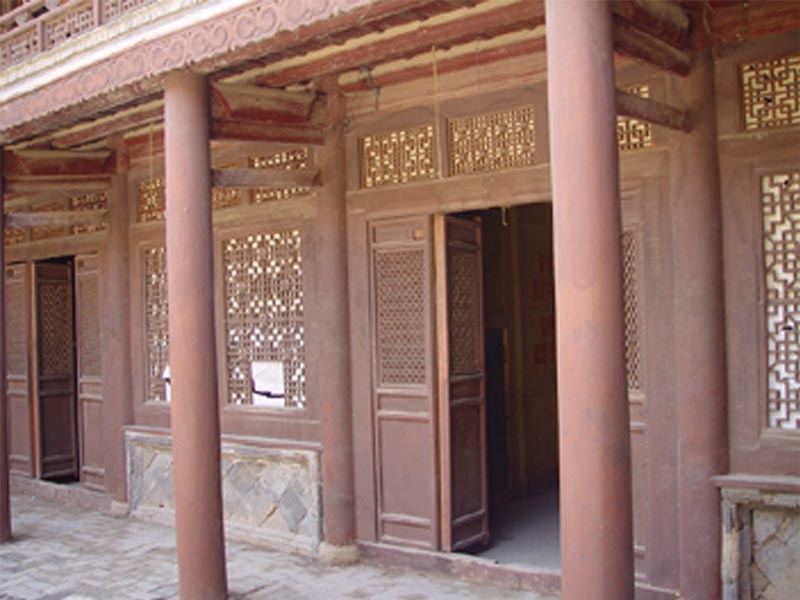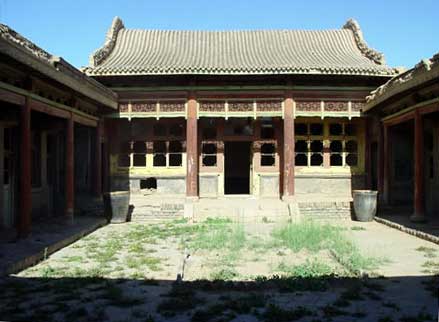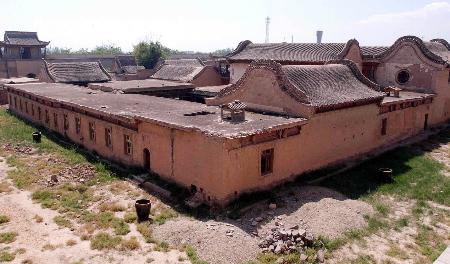

 |
The
general description of qinqu county
Qinqu county are at 11 kilometers away from the wuzhong city southwest
litong district. It is through the daqiao village. To its northwest, it is
the huanghe river; to its south, it is
 connected
with the qingtongxia county, with 6.7 kilometers from east to west; and
3.5 kilometers from south to north and the toal area are 17.2 square
kilometers, in which the arable land are 13880 mu with the per capita 0.83
mu. Right now, its coverage includes: damuqiao, hequbai, dingjiawan, tawan,
dayuanzi, qinkanguan, lutianwa, haoqu( 8 village) and 70 villager groups.
Whole county has 3863 household and 157.67 population. It belong to the
area of irrigation. The corn are mainly including rice, wheat, corn and
beans. It built the level two road for almost 60 kilometers, it once has
the target of has the coating road at every village, group and school and
temple. After its finish, it covers the whole county and the whole
territory program controlled telephone net, with convenient traffic and
communication. We take the government as the center, we built the supply
and selling office, comprehensive business building, stockbreeding office,
building office and the middle school testing building. The town has
initial scale, gradually it lay the foundation to the industrial and
business street. connected
with the qingtongxia county, with 6.7 kilometers from east to west; and
3.5 kilometers from south to north and the toal area are 17.2 square
kilometers, in which the arable land are 13880 mu with the per capita 0.83
mu. Right now, its coverage includes: damuqiao, hequbai, dingjiawan, tawan,
dayuanzi, qinkanguan, lutianwa, haoqu( 8 village) and 70 villager groups.
Whole county has 3863 household and 157.67 population. It belong to the
area of irrigation. The corn are mainly including rice, wheat, corn and
beans. It built the level two road for almost 60 kilometers, it once has
the target of has the coating road at every village, group and school and
temple. After its finish, it covers the whole county and the whole
territory program controlled telephone net, with convenient traffic and
communication. We take the government as the center, we built the supply
and selling office, comprehensive business building, stockbreeding office,
building office and the middle school testing building. The town has
initial scale, gradually it lay the foundation to the industrial and
business street.
In the reform and opening, the people in qinqu count get a breakthrough to
accelerate the all the industries centered by the economy. To receive the
new century, we will stand together to open the qinque county social economy.
together to open the qinque county social economy.
Qinqu, was once named as qinjiaqu. Its trench is opened at the east coast
of huanghe river qingtong gordge entrance, which is the earliest dry
trench in ningxia plain east huanghe river irrigation area. Early in B.C.
214, qin first emperor, sent the troop to resist the xiongnu troop by
building the great wall. He set 44 county in ningxia and building the
beidi county, adopting the business in the border policy. To develop, it
is the first time to build the 100 li trench at the east of huanghe river,
it is the qinqu today. According to the <ningxia fuzhi>, qiqu has 150li,
with the irrigation area of 110700 mu.
In the ming dynasty 18th year ( also the AD 1590), the official
went to inspect the river issue, said: the qin and han trench should be
built at the han,tang trench, to make the water flowing all the time, with
the irrigation area hectares. In AD 1623, in order to protect the lingzhou
city, the bank has been built for 100 zhang to force the water change the
direction, protecting the irrigation and save the lingzhou city.
Qinqu trench opening was originally earth ground, it takes time and money
to save it every year. In qing dynasty, the 39th year kangxi
emperor ruling period(AD1700), it has been
 changed
to stone to protect the trench. Till 38th year of qianlong
emperor, the port was again ruined, together with the local disturbance,
no regulation and very dangerous. It was resume the original till gangxu
emperor 30th to 34th years(AD 1904—1908) under three
time reinforcement. Till 1935, another several times sealed. changed
to stone to protect the trench. Till 38th year of qianlong
emperor, the port was again ruined, together with the local disturbance,
no regulation and very dangerous. It was resume the original till gangxu
emperor 30th to 34th years(AD 1904—1908) under three
time reinforcement. Till 1935, another several times sealed.
After the liberation, it will be mended every spring, to replce the curve
by the straight. The dangerous area are protected by the dangerous area.
The original trench opening are at 400 meters near the qingtong xia dam
side. At its upper part, it belong to blank trench. So in 1977, it moved
to yujiaqiao. Qin and han trench are combined int 4meters depth with the
biggest flowing at 65 cuber meters per second.
Now the trench covers the 400000mu, 3.5 times as that before liberation.
It through our city qinqu county, banqiao county, lingwu guojia qiao
county, haojiaqiao county, dumuqiao county, which is joined the lingwu
city in huang he river, with the total 70 kilometers. Till today, it also
have the undispensible role.
|